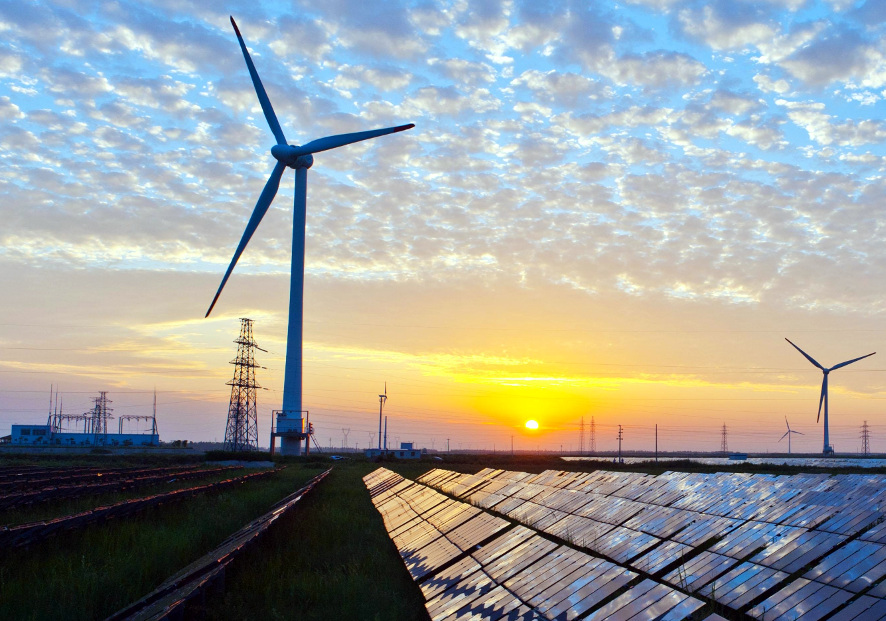India has the potential to develop ten times the 175 GW of renewable energy facilities it has set as a 2022 target, provided solar and wind plants are developed in locations with minimal environmental and social impacts, according to the Indian branch of U.S. non-profit The Nature Conservancy.
Utility scale solar and wind farms are expected to contribute most of the clean energy generation capacity required to hit the 175 GW target and the technologies would require one-and-a-half times the land area of Sikkim state to achieve the ambition. With concerns about biodiversity and loss of cultivable land associated with many of the sites considered by clean energy developers, the resulting conflicts can delay investment and project development, according to The Nature Conservancy India.
A study by the environmental group has suggested steps to enable more informed decisions about where to develop solar and wind farms, including developing project siting guidelines, establishing renewable energy development zones, tightening planning and procurement processes and improving the environmental and social performance of the Indian clean energy industry.
The environmental organization and its partners – Bengaluru-based thinktank the Center for Study of Science, Technology and Policy; Gujarat’s Foundation for Ecological Security; and New Delhi-based conservation group the Vasudha Foundation – have developed the SiteRight tool to improve the solar and wind power site selection decisions made by policymakers, project developers and financiers.
Investment risks
Nature Conservancy India estimates social and ecological conflicts have affected around Rs13 lakh crore worth of infrastructure investments across the nation, including renewable energy facilities.
With the stock of available development sites decreasing, such conflicts are likely to become more common, said the study, and Nature Conservancy India noted renewables companies already cite lack of land as a challenge for the sector.
The Covid-19 crisis is likely to exacerbate the number of social conflicts arising from poorly selected sites, according to the study. The mitigation measures associated with combating the spread of the novel coronavirus have prompted a ‘reverse migration’ by laborers, said Nature Conservancy India, with workers returning to rural settlements where their subsistence farming needs could bring them into conflict with clean energy developers.
The resulting delays to renewables projects could drive up costs and color currently-positive perceptions of the clean energy sector, posing risks to investment and to the nation’s energy transition, according to the report.
This content is protected by copyright and may not be reused. If you want to cooperate with us and would like to reuse some of our content, please contact: editors@pv-magazine.com.









2 comments
By submitting this form you agree to pv magazine using your data for the purposes of publishing your comment.
Your personal data will only be disclosed or otherwise transmitted to third parties for the purposes of spam filtering or if this is necessary for technical maintenance of the website. Any other transfer to third parties will not take place unless this is justified on the basis of applicable data protection regulations or if pv magazine is legally obliged to do so.
You may revoke this consent at any time with effect for the future, in which case your personal data will be deleted immediately. Otherwise, your data will be deleted if pv magazine has processed your request or the purpose of data storage is fulfilled.
Further information on data privacy can be found in our Data Protection Policy.